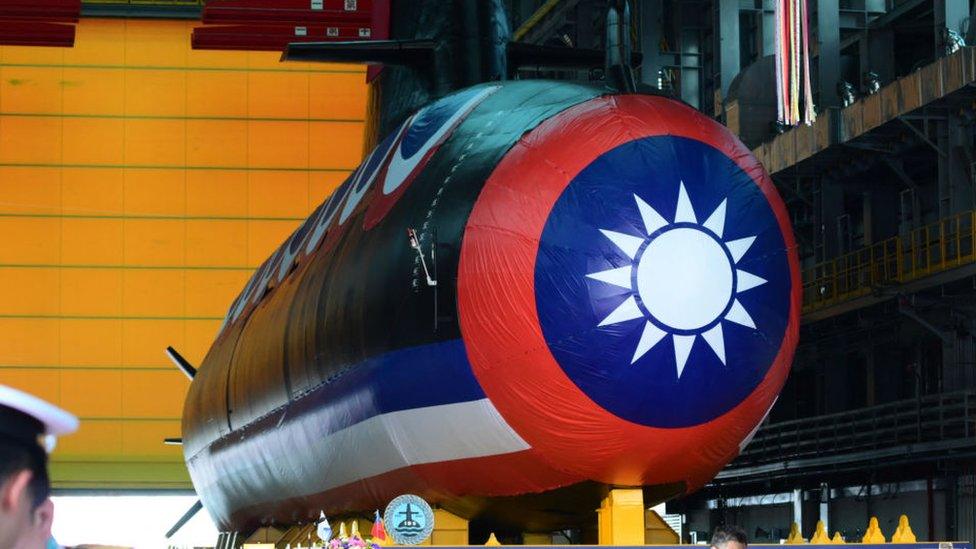Taiwan's opposition drama ends with no deal
- Published
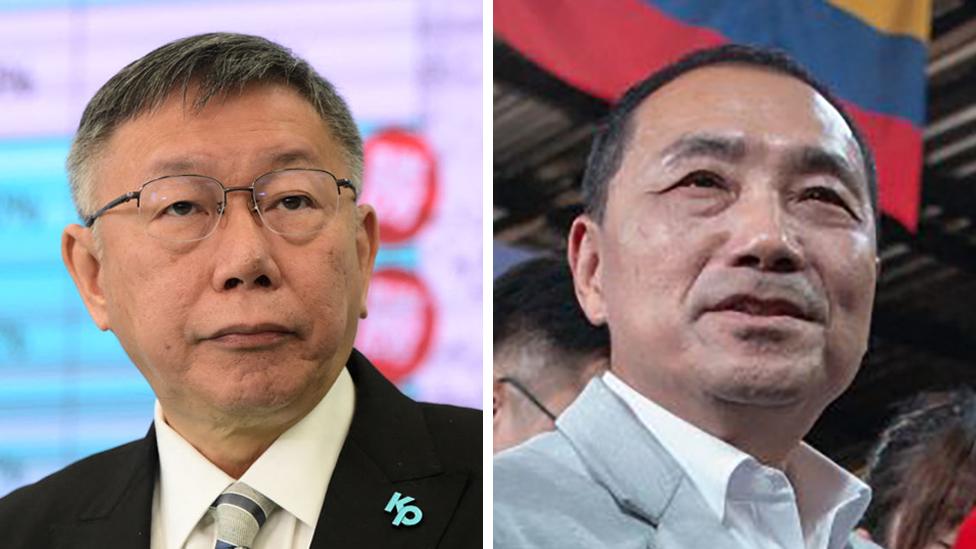
Opposition candidates Ko Wen-je (L) and Hou Yu-ih were meant to clinch a deal - but it quickly fell apart
The extraordinary drama is over. There will be no united opposition ticket in Taiwan's presidential election in January.
The final act was the most bizarre. On Thursday evening, all three of Taiwan's opposition presidential hopefuls - Ko Wen-je, Hou Yu-ih and billionaire businessman Terry Gou - found themselves sitting on a stage together in the ballroom of the Grand Hyatt hotel in Taipei.
It's not clear whether any of them really wanted to be there. Mr Gou was almost an hour late. As the cameras rolled, the bickering and recriminations began, with Mr Gou taking the lead.
It was their last chance for an agreement - a shotgun wedding that would have shaken up the winner-takes-all race, posing the first real challenge to the ruling Democratic Progressive Party (DPP), which is currently leading the polls. But it seems the alliance was doomed from the moment they all sat down.
Mr Gou, who was running as an independent, has now pulled out of the race.
So Mr Hou's old nationalist Kuomintang (KMT) and the newer Taiwan People's Party (TPP) led by Mr Ko are waiting to see who Mr Gou endorses. Recent polls showed support for him at less than 10% but that support could make a difference to the KMT or TPP.
Both their candidates are trailing the DPP's William Lai Ching-te, whose party has been in power since 2016.
Although Mr Lai, Taiwan's current VP, is leading the polls, his support is hovering around 30%. But that's enough for Mr Lai to become president in Taiwan's winner-takes-all presidential race.
Although they are both chasing the same voters, an alliance between KMT and TPP always appeared unlikely - not least because there was never any love lost between the two parties.
And now, with hours to go until registration for candidates closes, they have also announced their vice-presidential picks. The most interesting is the KMT's choice of Jaw Shaw-kong. Mr Jaw is a well-known TV personality and one-time leader of the right-wing New Party.
His family is from Hebei in northern China and he is a long-time and outspoken supporter of the "reunification" of Taiwan and China. Putting him on the KMT ticket will appeal to the party's traditional base of mainland-descended voters, who are not too enthusiastic about Mr Hou, who is seen as Taiwanese to the core.
Mr Ko's VP pick, Cynthia Wu, is a wealthy businesswoman and a sitting MP. Ms Wu is the daughter of a wealthy Taiwan financier and was both born, and university educated, in the United States.
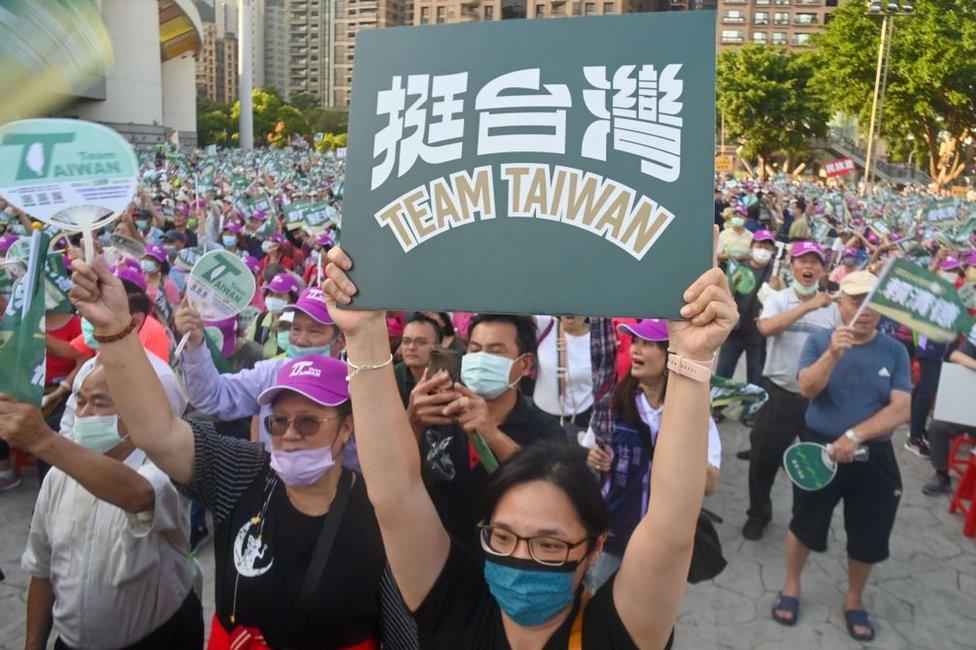
Campaigning is in full swing for January's presidential race
Both the KMT and TPP promise better ties with an increasingly aggressive Beijing - and a lower risk of war. This sets them apart from the DPP, which has drawn closer to the US even as its rhetoric about an independent Taiwan has got louder.
But that is where the similarities end.
The KMT ruled Taiwan from 1945 until 2000. It still sees the presidential office building in Taipei as its natural home. And party leaders are certain they would be returning there next year, if it wasn't for who they see as a political upstart called Ko Wen-je.
The 64-year-old former surgeon has garnered a surprising amount of support in this election, particularly from young voters, on the back of a push for affordable housing.
His detractors accuse him of being an opportunistic populist, with no real, consistent policies - and point to how wildly he has swung across the political spectrum during his career.
Back in the 1990s, Mr Ko was a staunch supporter of Taiwan's then opposition party, the DPP. In those days the DPP were the outsiders, fighting for full democracy and an end to decades of KMT dictatorship.
In 2000, Mr Ko campaigned for the DPP when its candidate won the presidency for the first time. Then in 2014, Mr Ko quit medicine and ran for mayor of Taipei - and the DPP supported him. He won, but success apparently convinced him he needed his own party.
In 2019, he founded the Taiwan People's Party. It would, he said, take the middle ground between the pro-Taiwanese independence DPP and the Beijing-friendly KMT.
Now Mr Ko is doing rather well in the presidential race. All summer and into the autumn he has been polling ahead of Mr Hou.
This is infuriating the old KMT grandees because the current DPP government, which has been in power for eight years, is not exactly popular.
And Mr Lai is not much of a campaigner. His poll ratings have gradually sunk, from over 40% in the summer to barely touching 30% now.
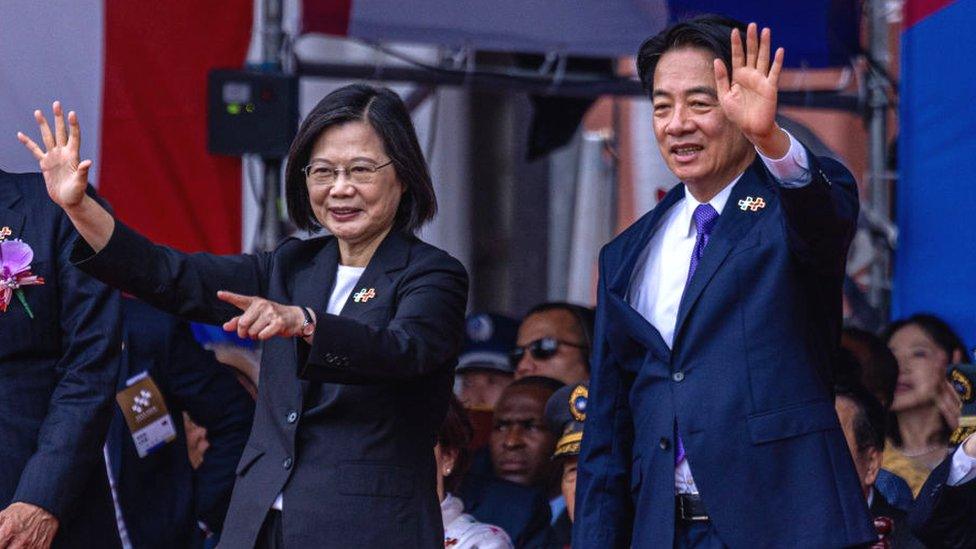
Current Vice-President William Lai is leading the polls to replace Tsai Ing-wen
Increasingly exasperated by their own candidate's failure to overtake Mr Lai and even Mr Ko, the KMT elders were forced to consider the unthinkable - an alliance with Mr Ko.
But the first attempt crumbled last Saturday, when a rather chagrined Mr Ko told a room full of reporters that he had been tricked into the agreement - and that he should not have negotiated with the KMT alone, without any advisers present.
Now, with Mr Gou out of the race, the opposition is down to the KMT and the TPP.
And the DPP has revealed its own electoral weapon - vice-presidential candidate Bi-Khim Hsiao.
Since 2020 Ms Hsiao has been Taiwan's feisty and articulate representative to the United States. Her supporters jokingly refer to her as Taiwan's "cat warrior" - a jibe at China's combative, so-called "wolf warrior" diplomats.
It will be interesting to see what happens in the polls when Taiwan's cat warrior - charismatic and popular with young voters - hits the campaign trail.
- Published9 November 2023

- Published14 June 2023

- Published14 October 2024
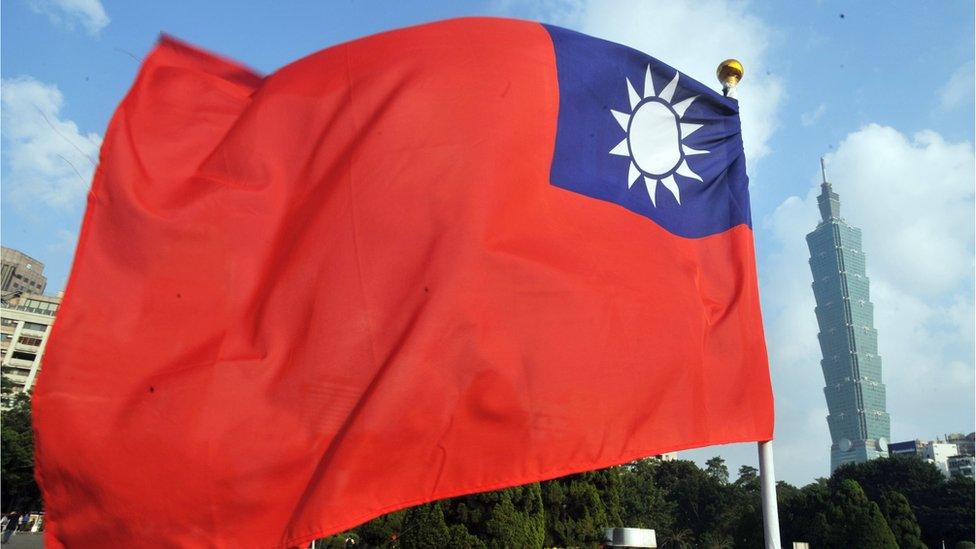
- Published28 July 2023
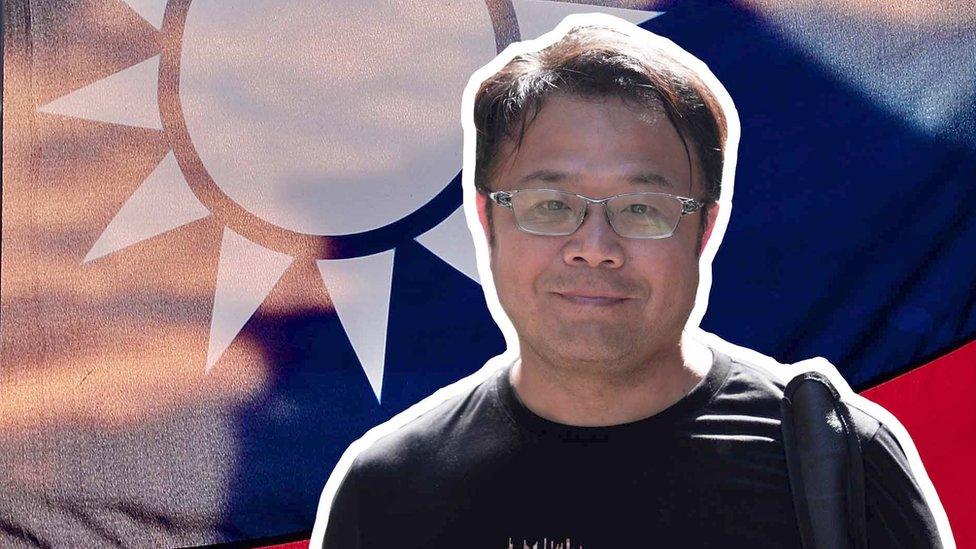
- Published4 October 2023
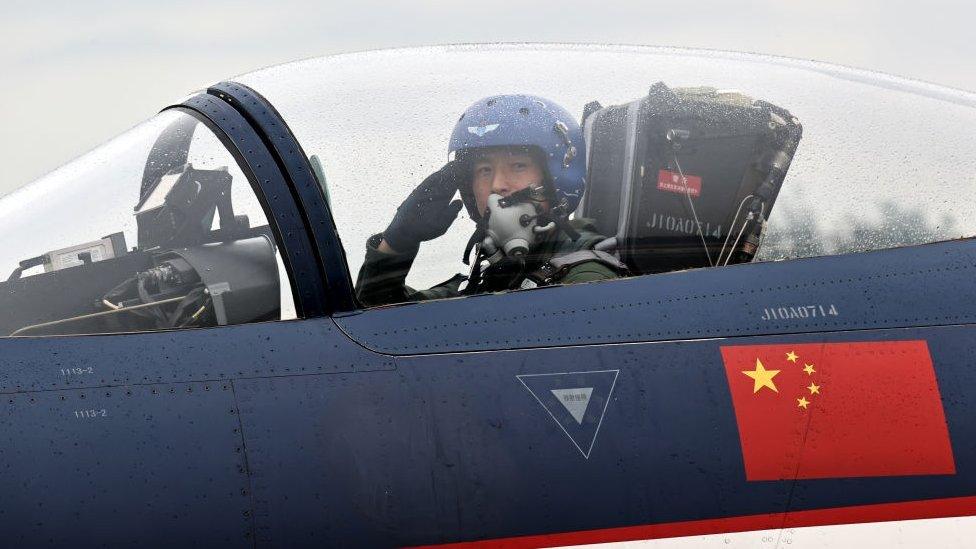
- Published28 September 2023
